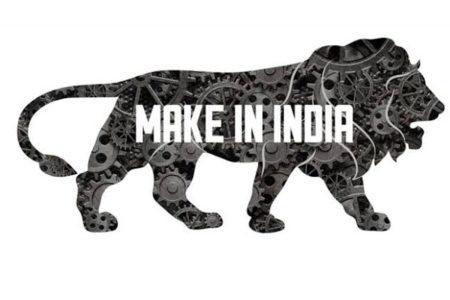New Delhi: As the “Make in India” initiative marks its 10th anniversary, it has emerged as a transformative force in promoting investment, fostering innovation, and developing world-class infrastructure. One of the initiative’s key achievements has been the creation of a robust manufacturing sector for renewable energy, positioning India as a major player in the global renewable energy equipment market.
A key focus of the Government has been to support and incentivize domestic manufacturing in this sector, ensuring that India is not only able to meet domestic demand but also serve the global market through exports. The initiative has helped boost India’s status as a hub for the manufacturing of solar PV modules, wind turbines, electrolysers, and battery energy storage systems.
Union Minister for New and Renewable EnergyPralhad Joshi, in a post on social media platform X, highlighted the significant progress made: “India’s renewable energy sector has contributed immensely to the #10YearsOfMakeInIndia. From PLI to VGF, we are extending all possible support to our domestic industries. We are committed to establishing India as a major global player in the complete value chain of clean energy solutions.”
Key Measures to Promote Domestic Renewable Energy Manufacturing
The Union Government has taken a series of financial, fiscal, and policy measures to bolster the domestic manufacturing of renewable energy equipment, including solar PV modules and wind turbines. Some key initiatives include:
- Production Linked Incentive (PLI) Scheme: Financial support to set up integrated manufacturing units for solar PV modules and upstream components, attracting investments for manufacturing projects.
- Viability Gap Funding (VGF): For Battery Energy Storage Systems and green hydrogen production, incentivizing large-scale electricity storage and green hydrogen projects.
- Fiscal Incentives: Concessional customs duties for domestic manufacturers and waivers on import duties for specific capital goods used in solar PV cell production.
- Basic Customs Duties (BCD): Imposed on imports of solar PV modules, cells, and inverters to encourage domestic manufacturing.
Under Pralhad Joshi’s leadership, policy measures have also been enhanced, such as the Domestic Content Requirement (DCR) in schemes like PM Surya Ghar: Muft Bijli Yojana, ensuring local value addition and quality control for solar and wind equipment.
Solar PV Manufacturing on the Rise
Solar PV manufacturing remains at the forefront of the Government’s renewable energy strategy. Since 2014, India’s installed solar PV module manufacturing capacity has expanded dramatically from 2.3 GW to 67 GW, making the country self-reliant in solar energy production and a key player in the global supply chain.
With the Government’s Rs. 24,000 crores outlay for the PLI Scheme for High-Efficiency Solar PV Modules, India’s solar manufacturing capacity is set to grow further. Currently, over 48 GW of integrated solar PV projects are under implementation, expected to bring in Rs. 1.1 lakh crore in investments and generate 45,000 jobs. This effort will also reduce the country’s reliance on imports while fostering export growth.
Vision for the Future
By 2026, India aims to achieve 100 GW of solar module production capacity annually, not only fulfilling domestic demand but also positioning itself as a significant exporter of renewable energy equipment. Through the Make in India initiative, the country is driving sustainable development while creating employment opportunities and advancing its goal of becoming a leader in the global renewable energy revolution.

